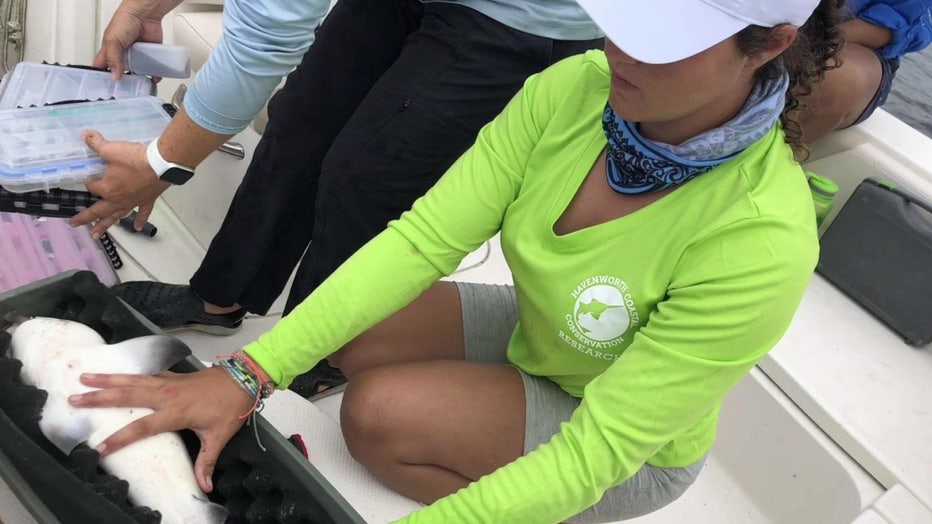Sarasota scientist hopes to figure out: What do our baby sharks do-do-do-do-do?
SARASOTA, Fla. - For those who fish and cast their lines in the waters of Tampa Bay, sharks are a common sighting. But for researchers, there's not a lot of data on local juvenile sharks for them to follow.
"They are often overlooked in monitoring programs, so we are really hoping to fill that gap and address management and conservation concerns for these species," said Dr. Jayne Gardiner, the director of the Pritzker Marine Biology Researcher Center at New College of Florida.
Gardiner hopes to change that with a $165,111 grant from the Tampa Bay Estuary Program and Restore America's Estuaries.
"We use acoustic transmitters. We implant these tags in the sharks," explained Gardiner.
The study will focus on the baby populations of blacktip, black nose, bull and great hammerhead sharks in Lower Tampa Bay. Tags will help track their movements.
"They can ping for up to 10 years we can track them as they are growing up in the nursery and moving on to other areas so there is a huge amount of information that come from these tags," said Gardiner.

Tagging a baby shark
PREVIOUS: Hundreds of sharks take refuge from red tide in Longboat Key canals
Researchers hope to learn more about if – and how – climate change and coastal developments could impact shark populations.
"We are specifically focused with this project on noise related to construction," she continued. "There’s very little known about how noise impacts fish in general, especially sharks."
The information they gather could one day be used to help protect sharks and Tampa Bay – our home and theirs.
"We'd like to understand why is this habitat important for them and what aspects of it do we need to conserve to make sure there are lots of baby sharks growing up in Tampa Bay that can contribute to that adult population," Gardiner added.
RELATED: Great white shark bites boat in Gulf waters off Tampa Bay

